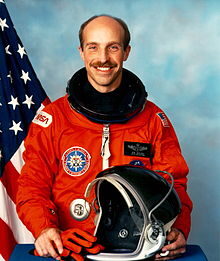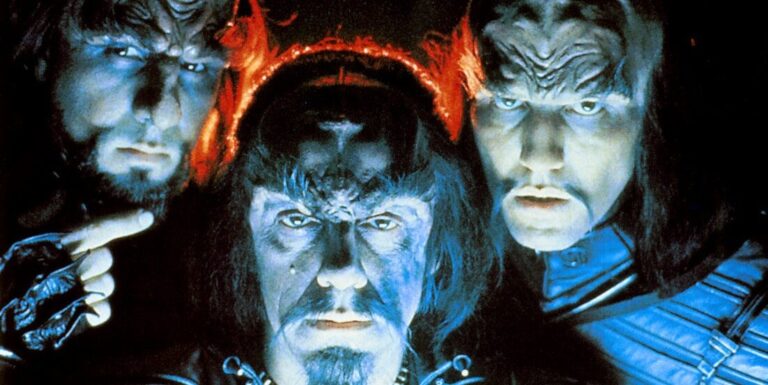NASA Interview – A Chat With Astronaut Tom Marshburn
Today I got the opportunity to speak to one of my absolute hero’s over Skype as I had a quick chat with NASA astronaut, Thomas Marshburn, who answered some of the questions I had and also some posed by my readers.
I was a bit nervous when I called, but he was an incredibly nice guy and I am extremely grateful that he took the time out of his busy day to speak to me. Just a few minutes into the conversation and I could already tell that he was incredibly passionate about his job and although he’s probably been asked some of these questions a hundred times, he answered like it was the first.
You could tell that he was extremely grateful to have worked for NASA and he is incredibly proud of the things that he has achieved on his missions in space. Above all else, he seemed like a genuinely nice guy.

Hi Tom. Thanks for taking the time to chat with me. To start off, I wanted to ask who were your inspirations from NASA? Did you look up to the likes of John Glenn and Neil Armstrong? Or were you inspired by later astronauts?
Thanks, no problem. Of course I was inspired by the Apollo and Gemini astronauts but I have to say that Jim Bagian was probably one of the first astronauts that I really admired and wanted to copy.

What was your inspiration for becoming an astronaut?
I’ve always been fascinated by it and the thought that humanity can push the limits and head into space really inspired me. I decided at a young age that I wanted to be involved and I decided that the only way was to work extremely hard. I grew up watching NASA putting satellites into orbit and I thought that if they can put these huge vehicles and objects up there, then I want to be a part of it.
Were you a science fiction fan?
I wasn’t really a science fiction fan perse, but I did love reading. I read many science fiction and science related books including Dune amongst tons of others.
So you never thought you might become the next captain Kirk?
Haha, I have watched a few Star Trek episodes but I wasn’t an expert on the show so I did not imagine being a Star Trek captain.
Was teamwork an important factor in your astronaut training?
Team work is a massive part of training. Huge. In fact, astronauts are often selected on their ability to work well with others. You have to train for years sometimes and develop relationships where you can 100% depend on each other.
I’ve been to most environments on Earth and I have distinct feelings and emotions that I remember from all of them. What sort of emotions were going through your mind when you left the ship on your first EVA?
You really need to get your head together before you open the hatch as it’s a real mix of emotions that are going through your mind at this point. You are worried because its space, obviously, and any number of things could go wrong. But you are also excited because you’re doing something that very few people have ever done. You are confident because you’ve trained for this and you’ve trained for any eventuality. And then, when you open the hatch and see the planet, it’s the very best view you could ever imagine.
What advice would you give to anyone wanting to become an astronaut?
Your determination is critical. NASA need scientists, doctors and engineers with a range of skills and experiences. You need to be one of the very best at what you do, but also not so specialized that you can’t multitask and work on other areas. For instance, a biologist is also going to be a pilot at some point during the mission. Physical conditioning is also extremely important for any astronaut and your body should always be in peak condition. Flying is very important. As is taking calculated risks, you will find that most astronauts are risk takers in their free time, often with high-adrenaline sports and the like.
Do any specific degree fields/majors standout as being more likely to be hired?
As you probably know, we are recruiting at the moment for the next round of NASA astronauts and we do have certain needs, especially amongst the scientists. Biologists are looked at especially at the moment in order to work on experiments in the ISS. But as mentioned, you will be required to perform other duties.
How did you find working with Chris Hadfield? I heard he is a fun guy.
Chris is a really great guy. One of the most competent people I’ve worked with, and by competent I mean that he is really good at his job. We started training 2 and half years before a mission and we spent some weeks under the sea in a NASA training laboratory and Chris was the Commander during our time there. He would always say that he wanted 3 things from his team. 1; to be safe, 2; to get the job done and 3; to have fun. And yes, sometimes the third option was as important as the others. He is always extremely passionate about his work.
Would you volunteer for another mission?
I am hopeful for another mission. I had long thoughts about it and the last time I went into space in 2013 I imagined that it might be my last as I have a wife and kids. But then I think that there is so much more that we haven’t explored yet and there is so much more to do that I’d love to go back for another mission if the opportunity presented itself.
Would you ever consider a mission with a private company such as SpaceX?
It’s really incredible what some of these private companies are doing and they will soon be working alongside NASA in delivering astronauts into space. I am sure that some fantastic guys will be working on these projects in the future but I haven’t given it too much thought to be honest. I enjoy working with NASA and I am hopeful that my work will continue here. But, who knows what opportunities might appear in the long term.
Do astronauts get jet lag after returning to Earth?
Believe it or not, astronauts do get jet lag after returning from missions but it isn’t the biggest problem. When returning from the ISS you are working 18-20 hour days on the way back to the surface, so of course, you are extremely fatigued and the time difference also works against you in space. But, the real problem is gravity. Although you’ve been physically working out for months at the ISS, your body just does not want to get back to accepting gravity. I could stand with no problems, but I couldn’t keep my balance for some time.
And lastly, where do you see the space program in a 10 and 20 years’ time?
Well we have a new president coming into office very soon and we can expect to know more about his vision for NASA in the coming months. That has the ability to shape our long-term plans on whether that means returning to the Moon or heading further afield to the likes of Mars. But whether he is supportive or not, the long term plan has to be making deep space flight the routine. Near Earth Orbit is a big deal at the moment and we can expect big things from the SLS program in the next few years.
Thanks Tom.
Great questions, Thank you.





